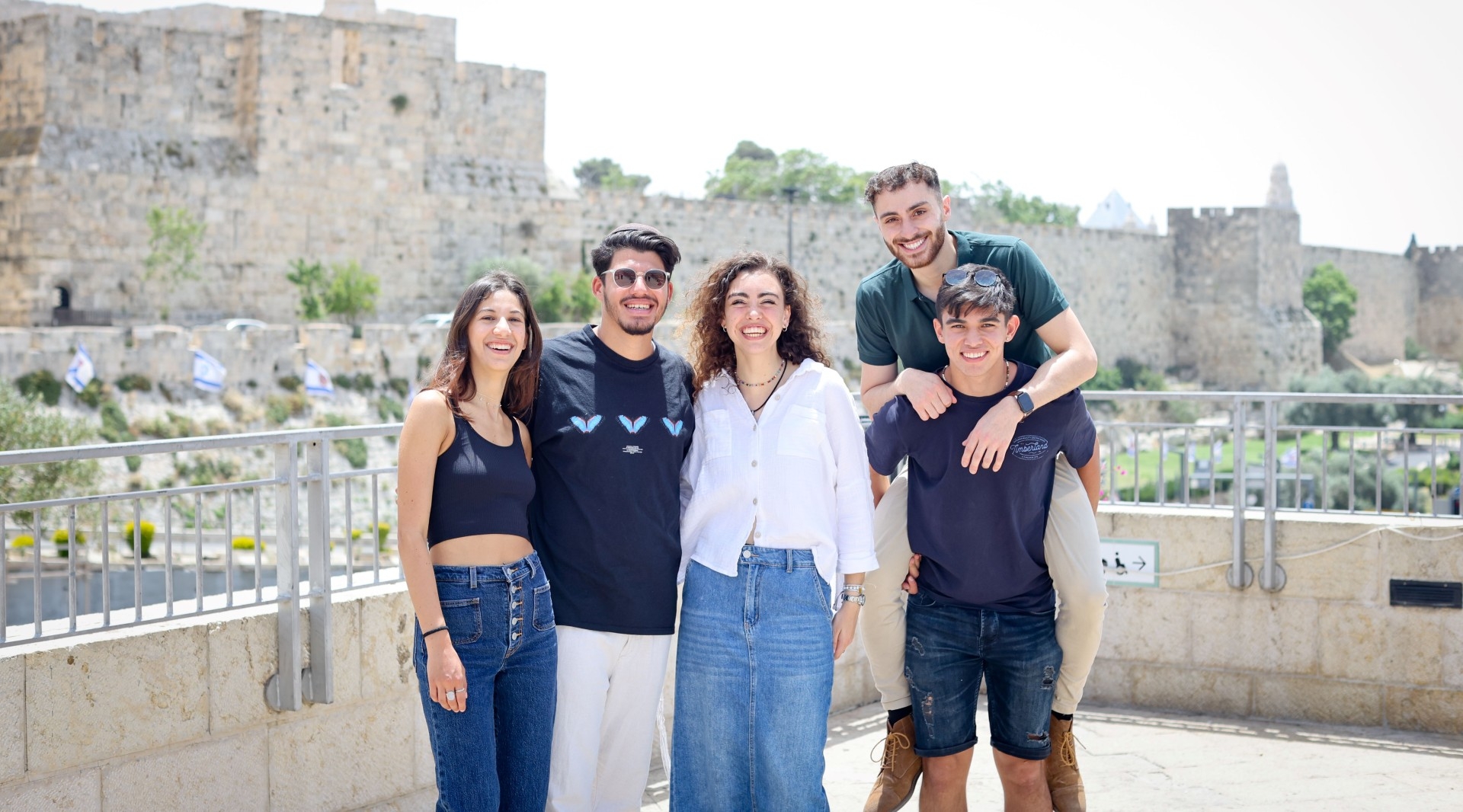Early in her senior year in high school in Washington D.C., Elie Ravitz-Basser realized that the Israel-Gaza war would upend her college plans.
“I applied to four universities in the United States early in the fall, but everything changed after Oct. 7,” she said. “At that point, I decided to attend college only in Israel, surrounded by people who share my Jewish values.”
Ravitz-Basser is set to start her bachelor’s degree this fall in Jerusalem, pursuing a double major in English and Liberal Arts at Hebrew University’s Rothberg International School. She’ll be part of a brand-new, three-year undergraduate degree program, offered in English for the first time at Hebrew University.
“This is a unique opportunity to study in Jerusalem and immerse myself in the Israeli culture,” Ravitz-Basser said. “I’m excited about the classes I’ll be taking and I feel a deep connection to my great-grandparents, who came to Israel from Poland in the 1920s with the vision of reestablishing their homeland.”
Ravitz-Basser is among many recent high school graduates who have reconsidered their college plans in light of the anti-Israel protests that swept across U.S. campuses last spring. For her, the breaking point came during the violent protests and encampments that spread from coast to coast, many of which were seen as not just anti-Zionist but antisemitic.
“That made it clear that I wouldn’t attend any college where I couldn’t feel safe without hiding my identity,” she said.
Hebrew University is not just a top-tier Israeli academic institution but also consistently ranks among the top 100 universities in the world. As it prepares to celebrate its 100th anniversary next year, the university has long offered a wide variety of programs in English for international students, including semester- and year-long programs for undergraduates as well as about 40 different master’s programs.
However, the new three-year undergraduate program in English marks the first time overseas students can complete an entire BA degree at the Jerusalem institution.
“The Rothberg International School has been developing this program for a few years,” said Naama Oryan, director of Hebrew University’s International Marketing Division. “Our original goal, which remains unchanged, was to offer a top-tier academic program that celebrates the diversity of Jerusalem and Israel. Students now have the option of studying for a BA in English at HUJI. We will support them and make HUJI their home away from home while they’re here.”
Degree tracks are available in English, Business and Liberal Arts, and all undergraduate students are required to pursue a double major.
“We offer it this way to encourage our students to engage in multidisciplinary learning,” Oryan said.

Hebrew University’s new three-year undergraduate program in English marks the first time overseas students can complete an entire BA degree in English at the iconic Jerusalem university. (Courtesy of Hebrew University)
About 25-30 students are expected in the first year, primarily from North America but also from Japan, India, France and Germany. Additionally, some new immigrants to Israel who prefer to take classes in English will join. Classes begin in November, right after the Jewish holiday season.
Unlike other programs, students have the option to transfer their credits from the English program to the university’s regular Hebrew tracks in their second year, allowing them to better integrate Hebrew classes as their language skills improve. Additionally, they have the option to take Hebrew classes to further enhance their language proficiency.
The tuition cost is one of the program’s biggest selling points. The undergraduate program costs $15,000 per year — a fraction of the price of most US colleges. Master’s degrees typically range from $5,000 to $10,000 per year.
After securing scholarships for U.S. students, Ravitz-Basser expects to pay about $7,000 for her tuition in the program.
“Many of the U.S. colleges I applied to were around $85,000 a year,” she said. “That’s amazing.”
These scholarships are made possible in part through American Friends of the Hebrew University (AFHU), the university’s American fundraising and promotional affiliate, which raises an average of $60 million annually to support Hebrew University. AFHU operates six offices across the United States and promotes the university through donor events and public relations efforts.
Hebrew University accommodates a diverse student body of 25,000 across six campuses in Israel, including three in Jerusalem and one in Rehovot. Approximately 10% of its students hail from overseas, representing over 90 countries worldwide.
Beyond academics, campus life at Hebrew University offers robust student support services and a wide range of extracurricular activities, from yoga classes and Shabbat programs to parties and Jewish learning opportunities. “Our office of student life has significantly expanded its services in recent years, now providing 24/7 support for nearly all student needs to ensure they feel cared for and at home,” Oryan said.
The university campus serves as a vibrant hub where students encounter Israel’s diverse population, encompassing Jews, Muslims, Christians and Druze. Despite political tensions, relationships between Jewish and Arab students have remained peaceful throughout the war. Approximately 20% of the university’s student body consists of Christian and Muslim Arabs, reflecting their proportional representation in Israel’s population.
Applications for the upcoming school year are still being accepted, and remaining spots will be filled on a first-come, first-served basis. Interested students can find more information or attend an online open-house event at www.studyinjerusalem.com.
The New York Jewish Week brings you the stories behind the headlines, keeping you connected to Jewish life in New York. Help sustain the reporting you trust by donating today.
This article was sponsored by and produced in collaboration with American Friends of the Hebrew University, a national nonprofit that connects the passions of Americans to talent at the Hebrew University of Jerusalem. This story was produced by JTA’s native content team.
More from American Friends of the Hebrew University




